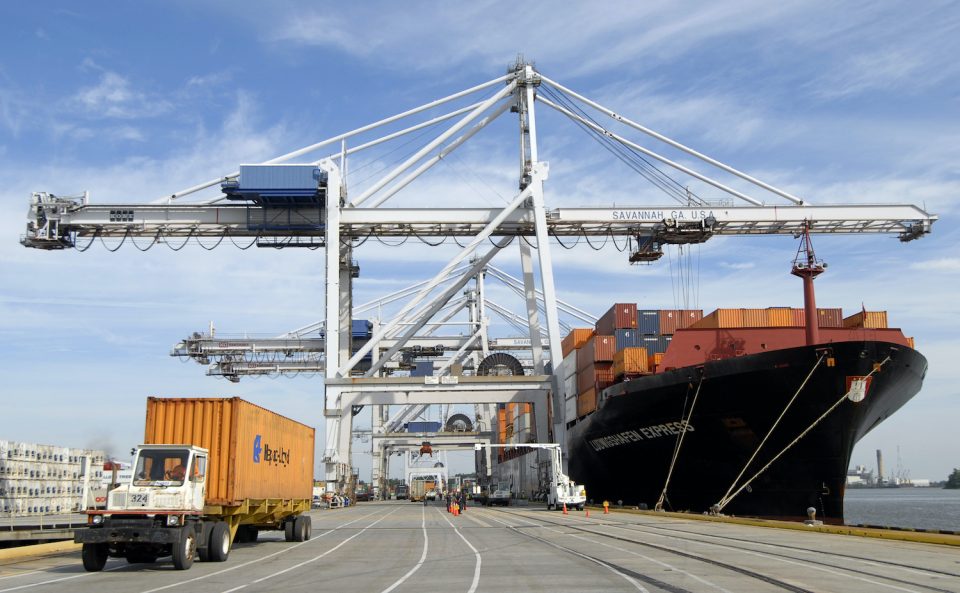Covid-19 pandemic has brought global economies to a standstill and has created challenges to a variety of sectors including housing, building and infrastructure. Many business and government organisations have experienced some form of supply chain disruption – either through suppliers going offline, a sudden spike in demand or both.
For example, impacts to trade through transportation limits and production slowdown are affecting business productivity, with 94 of the Fortune 1000 seeing supply chain disruptions.
According to a survey conducted by the Institute for Supply Chain Management (USA), 75 per cent of companies are reporting supply chain disruptions due to Covid-19. Australia’s Covid-19 experience, which follows the devastating 2019-2020 bushfires, has also led to significant supply chain disruptions from wood through to personal protective equipment.
The imposition of export restrictions on these products has compounded this situation, creating another layer of complexity to sustainable procurement due to process delays, loss of efficiencies, and cost impacts.
While there are limited precedents to assist organisations to clearly understand what the potential future impacts may be, it is clear that flexibility and adaptability are key. Right-time, right-place procurement decisions can assist businesses to be more resilient and better positioned for post-disruption recovery – in this case as the acute pandemic subsides.
Understanding the Australian experiences related to covid-19 impacts on sustainable procurement:
Our recent research explored the lived experiences of private and government organisations and the challenges they experienced in the face of Covid-19 disruptions, to develop a framework with key levers for sustainable procurement after Covid-19.
Through two focus group discussions we were able to gain insights on Covid-19 realities from industry practitioners and government decision makers. There was a major emphasis on rapid interactions and tasks such as pre-start checks and cleaning activities.
A private sector representative shared: “The first impact I noticed was really around having to work very quickly with suppliers on their working practices, pre-start checks and cleaning. Safety took precedence over other priorities.”
Government sector representatives also described how they immediately engaged in safe operational practices and sourcing activities. They also shared their experience in delays in contractors delivering on time and suppliers struggling to meet their contractual obligations.
Another participant explained the challenges related to limited supply:“Once Covid hit, we got a lot of feedback from our contractors with limited supply, and obviously they do not stockpile, and a lot of the supply was coming from overseas and that all stopped”.
To overcome this challenge a multi-level risk assessment was suggested as one strategic approach that could assist. Some businesses also benefited from pivoting to more localized value chains, and some to global supply chains.
To achieve a more interest-aligned approach as opposed to an adversarial contractual relationship, both the public and the private sector should be investing in productivity measures, training, skills and capability, different risk allocations and new methods of construction and contracting.
Levers for sustainable procurement to better manage businesses after Covid-19
Learning from the Covid-19 realities, government and industry can re-assess their supply chain risks and determine supply chain design solutions that will deliver the most resiliency in the event of another large-scale disruption. Through Covid-19 there was more focus on possible adoption of digital approaches and introduction of a new system to electronically process information,
“Anything that wasn’t required on site engagement was done electronically. We introduced a new system to embrace…more processes electronically, and more information”(Private sector participant).
Another industry practitioner emphasised the importance of these tools in sustainable procurement,“It’s also about value creation. It’s about driving better outcomes whole of life outcomes, reducing operational costs, providing value for money, making sure that we’re prepared for things like shocks and stresses”.
Key levers including developing reliable, transparent, and local supply chains, leveraging innovative tools and digital engineering approaches, creating a coalition between government and industry, integrating Modern Slavery Act and procurement guidelines, and assessing risks at multiple-levels emerged through the focus group discussions.
It is important to use targeted tools such as technological platforms that collect information from industry suppliers on their modern slavery exposures on operations and supply chains. For example, a private sector participant described their experience of using such a tech tool: “We ask our suppliers to complete a series of questions and they had to disclose on this database, with information on who they supply with, where they get their products from, how do they ensure that Modern Slavery’s met” (Private sector participant).
Enterprises can then make their supply chains more resilient, collaborative and networked as they recover from Covid-19.
Acknowledgement: This research is funded by the Sustainable Built Environment National Research Institute [Project 2.76: Sustainable Procurement]
Savindi Caldera and Sherif Mohamedare are based at Cities Research Institute, Griffith University; Yingbin Feng is based at Western Sydney University, Kingswood Campus and Carl Barret is based at BGC
[SC1]Hi Tina, Please feel free to leave/ remove this section as you see fit


